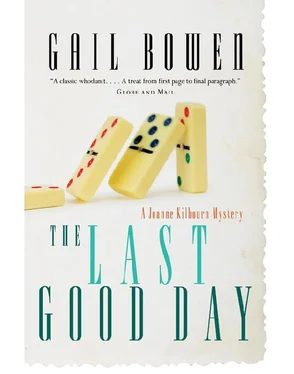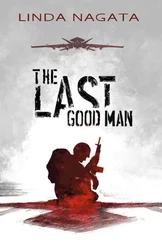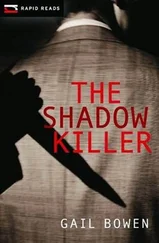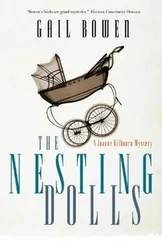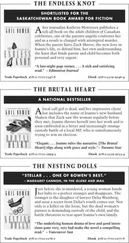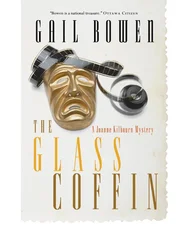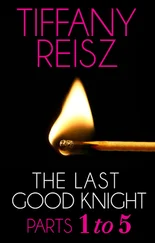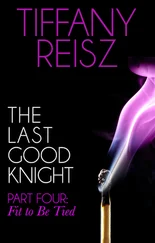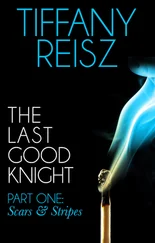Gail Bowen - The Last Good Day
Здесь есть возможность читать онлайн «Gail Bowen - The Last Good Day» весь текст электронной книги совершенно бесплатно (целиком полную версию без сокращений). В некоторых случаях можно слушать аудио, скачать через торрент в формате fb2 и присутствует краткое содержание. Жанр: Классический детектив, на английском языке. Описание произведения, (предисловие) а так же отзывы посетителей доступны на портале библиотеки ЛибКат.
- Название:The Last Good Day
- Автор:
- Жанр:
- Год:неизвестен
- ISBN:нет данных
- Рейтинг книги:4 / 5. Голосов: 1
-
Избранное:Добавить в избранное
- Отзывы:
-
Ваша оценка:
- 80
- 1
- 2
- 3
- 4
- 5
The Last Good Day: краткое содержание, описание и аннотация
Предлагаем к чтению аннотацию, описание, краткое содержание или предисловие (зависит от того, что написал сам автор книги «The Last Good Day»). Если вы не нашли необходимую информацию о книге — напишите в комментариях, мы постараемся отыскать её.
The Last Good Day — читать онлайн бесплатно полную книгу (весь текст) целиком
Ниже представлен текст книги, разбитый по страницам. Система сохранения места последней прочитанной страницы, позволяет с удобством читать онлайн бесплатно книгу «The Last Good Day», без необходимости каждый раз заново искать на чём Вы остановились. Поставьте закладку, и сможете в любой момент перейти на страницу, на которой закончили чтение.
Интервал:
Закладка:
“Why would she think you were mad?”
Taylor wolfed a dainty triangle. “I don’t know,” she said. “Gracie knows, but she won’t talk about it.”
I poured cereal into my bowl and went to the fridge to get the milk. The carton was suspiciously light. I opened it and held it over my bowl. Three drops of milk dribbled out.
Taylor and I exchanged glances. “Angus!” we said in unison.
I selected a banana. “A fruitarian’s breakfast for me,” I said. “But I might as well walk down to the Point Store and get a litre of milk. Want to come?”
Taylor shook her head. “I’m already late. We want to get the Inukshuk finished today.”
“Okay,” I said. “Don’t forget to check in.”
I picked up my purse and started for the door, but the mention of Lily Falconer had taken the bounce out of my step. I had no proof that Lily and Alex had been together during the days when they had both been AWOL, but logic suggested it was a strong possibility. If Lily was coming back, it was possible that Alex was coming back too. Our relationship was over, but the prospect of Alex losing the career he’d spent half his life building sickened me. When I picked up the phone and dialled Robert Hallam’s number I was searching for reassurance that somehow the confusion and questions Alex had left behind had been cleared away.
Robert Hallam offered no comfort. He was pleasant but guarded when he heard my voice. We inquired after one another’s families and then I asked if he’d had news of Alex.
I could feel the ice. “I can’t talk about Inspector Kequahtooway, Joanne. It’s an internal matter now.”
“So Alex is being investigated.”
Robert was edgy. “Joanne…”
“I know,” I said. “It’s an internal matter.”
He sighed. “Rosalie and I still consider you a friend. I just can’t discuss this.”
“I understand,” I said. “But Robert, is Alex all right?”
There was a silence. “I can’t discuss it. Goodbye, Joanne.” He cleared his throat. “Our door is always open to you.”
As I walked to the Point Store, the realization hit me that, in the vernacular of another era, there was more than one way to skin a cat. Robert Hallam wasn’t the only source of information available to me. I passed the store and went straight to Coffee Row. Three of the gents were already holding court and Endzone, flopped on the rug at her master’s feet, was dreaming her old-dog dreams. The gentlemen raised their caps to me, but instead of continuing to my place at the next table, I joined them. The shock was seismic.
Morris took command. “You’ve sat in the wrong place,” he said, turning up the volume the way he would for someone who didn’t understand the language. He pointed to the picnic table under the tree. “That’s your place over there.”
“I want to sit with you today,” I said.
Aubrey, the gnome with the dental-drill whine, leaped to his feet. “This is the men’s table. We smoke. We use strong language. We talk about things you’d have no interest in.”
Endzone, ripped from sleep by the ruckus, ambled over, sniffed me curiously, and fixed me with a baleful eye.
“It’s all right,” I said, stroking her jowls, “I’m just visiting.” Mollified, she rested her chin on my knee and awaited developments.
I turned my attention to the men.
“I need some information,” I said. “And I think you can help me. Once when I was having coffee here, I overheard you talking about Lily Falconer.”
Aubrey sat back down and the trio exchanged glances.
“I’m not asking you to gossip,” I said. “I just want you to tell me about Lily Falconer. That day you mentioned something about a tragedy involving her mother.”
“Goddamn that daughter of mine,” Morris thundered. “You could have read everything you needed to know if that girl had left my archives alone, but oh no, she thought they were a fire hazard. She gave me a choice – say goodbye to my Player’s Plains or say goodbye to my archives. What the hell kind of choice is that for a daughter to give her father?”
Lear couldn’t have been more cogent. It was a freighted question, and I waited for Morris to move on. It didn’t take him long.
Tapping his temple with a forefinger brown as a cured tobacco leaf, Morris grew discursive. “My archives may be gone, but I still have my mind. I can tell you what happened, in my own words. It’ll be – what do they call it, Stan?”
“Oral history,” Stan said.
“Which is good,” Morris said. “Except you lack the pictures.”
“She can still see the damn pictures,” Stan Gardiner said. “The newspaper has its own archives, Morris, and they don’t use theirs to paper-train puppies. Mrs. Kilbourn can walk into the offices of the Valley Gazette and ask them to let her look at everything they’ve got on Gloria Ryder.”
“Gloria Ryder,” I repeated. “That was Lily’s mother’s name?”
“Yes,” Stan said. “The date you’ll be wanting is January 1968, and after you’ve gone through the paper’s archives, come talk to me. It’s only right that you get the full story.”
In the months after I’d decided to rent the cottage at Lawyers’ Bay, I subscribed to the Valley Gazette. It was a weekly that was clear in its purpose: to record the births, marriages, deaths, celebrations, follies, and accomplishments of its citizens and to keep a wary eye on governments, developers, and special-interest groups that might threaten the fine lives of the people of Fort Qu’Appelle and district.
The building that housed the paper was as solid and neighbourly as the Gazette itself. The brass plate that announced the paper’s name was polished to a fine sheen and the red geraniums in the window bloomed with health. There was a bell on the counter that separated what was obviously the business part of the newspaper from the reception area, and when I rang it a very thin young man, wearing a jacket and tie, bluejeans, and John Lennon glasses came out to greet me. He didn’t look much older than Angus.
“I’m doing some research,” I said. “I wonder if I could look at your newspaper’s coverage of a case involving a woman named Gloria Ryder. The events happened in January 1968.”
“No problem,” he said, and apparently it wasn’t. He was back with the file within fifteen seconds.
“That was snappy,” I said.
“You’re not the first person to ask for that information today,” he said.
“May I ask who else was interested?”
“The media are ever vigilant,” he said, and his smile was impish. “Take as much time as you need. Ring when you’re finished.”
The reception room was a pleasant place to read: quiet, with sunshine filtering through the brilliant red petals and deep-green foliage of the geraniums. That said, the story in which Gloria Ryder unwillingly played the central role was grim, a tale of obsessive love that ended in the tragedy of a grisly murder-suicide.
Gloria was married to John Ryder who, like her, was a Dakota from Standing Buffalo. The newspaper described them as good people: hard-working, churchgoing, devoted to their only child, eight-year-old Lily. John was a mechanic and Gloria was a nurse at the Indian hospital in Fort Qu’Appelle. The problem started when a middle-aged white doctor at the hospital became infatuated with Gloria. The year was 1967. Indian women had had the vote for less than five years, and Gloria understood her position in the scheme of things. She needed her job, and she knew that in a case of he said-she said, she would be the loser. Afterward, she explained that she had done everything in her power to rebuff her unwelcome suitor, but that she hadn’t wanted to risk telling either her husband or her employers. The doctor never made any physical advances towards Gloria. He was convinced that his destiny was to take Gloria from the life she knew and, as he put it, raise her up. One bitterly cold night in mid-January, Gloria’s unwillingness to be raised up drove the good doctor to Standing Buffalo, where he shot John Ryder, who was sitting in his living room reading a Maclean’s magazine. Then, apparently moved to pity by the presence of the daughter of the woman he sought to save, he turned the gun not on Gloria but on himself.
Читать дальшеИнтервал:
Закладка:
Похожие книги на «The Last Good Day»
Представляем Вашему вниманию похожие книги на «The Last Good Day» списком для выбора. Мы отобрали схожую по названию и смыслу литературу в надежде предоставить читателям больше вариантов отыскать новые, интересные, ещё непрочитанные произведения.
Обсуждение, отзывы о книге «The Last Good Day» и просто собственные мнения читателей. Оставьте ваши комментарии, напишите, что Вы думаете о произведении, его смысле или главных героях. Укажите что конкретно понравилось, а что нет, и почему Вы так считаете.
